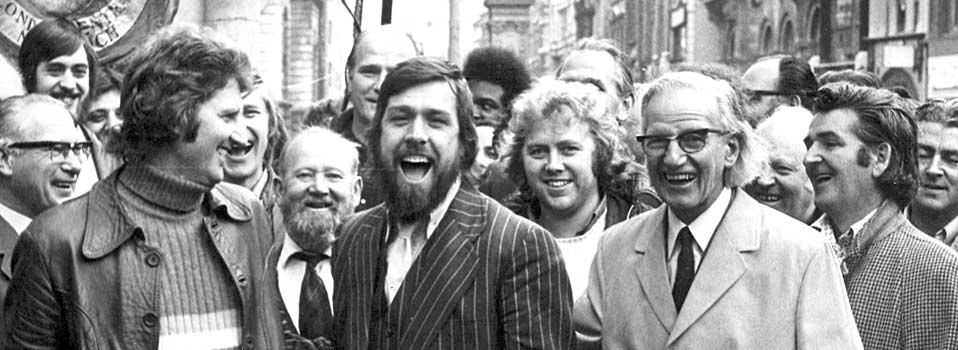The miscarriage of justice watchdog has finally referred the case of construction workers claiming to have been wrongly jailed following an industrial dispute in the 1970s, 10 months after being forced to change its mind as a result of being challenged through the courts.
As reported on the Justice Gap, the Criminal Cases Review Commission rejected the application on behalf of members of the so called Shrewsbury 24 in December 2018 and the group successfully challenged that refusal last April. Prior to the CCRC rejecting the case, the watchdog had spent five years investigating it.
- You can read about the Shrewsbury 24 case here and here – and an interview with Ricky Tomlinson by Nick Bano here.
The CCRC Chairman Helen Pitcher defended the commission’s original review as ‘detailed and thorough’. ‘When it became clear that the Administrative Court took a different view on two specific points we decided to revisit our decision,’ she continued. ‘We looked long and hard again at the specific issues involved. It was by no means a foregone conclusion that we would change our original decision, but in the end we have decided there is now enough to refer these cases for appeal.’
‘These are complex matters of judgment and not precise calculations. Some will think this has not been the Commission’s finest hour, but it does at least show that we are an organisation that can revisit a decision impartially and where necessary change its mind.’
Helen Pitcher, CCRC Chairman
The eight men whose cases are being referred are John McKinsie Jones, John Malcolm Clee, William Michael Pierce, Terence Renshaw, Patrick Kevin Butcher, and Bernard Williams, and also Kenneth Desmond Francis O’Shea and Dennis Michael Warren both of whom are deceased.
They had been charged under arcane legislation (Conspiracy Act 1875) for offences relating to intimidation and damage to property for picketing during the first nationwide industrial action by the building trade.
Their application to the CCRC in 2012 was based a number of grounds, including recently discovered evidence that original witness statements had been destroyed and that this fact had not been disclosed to the defence counsel. They also argued that the broadcast of an ITV documentary (‘The red under the bed’) during the original trial, content was contributed by a covert agency within the Foreign Office known as the Information Research Department, was highly prejudicial.
The case of actor Ricky Tomlinson (as well as George Arthur Murray) was not part of the judicial review and, consequently, has not been referred. In his 2016 interview with Nick Bano, he said: ‘I’ve got no faith in the judicial system whatsoever. It’s more important to me that the public finds out what has been done to us. It’s an uphill struggle but we won’t give in.’
The CCRC rejected the case in October 2017. At the time the campaign secretary Eileen Turnbull told the Justice Gap that the case should have been referred back to the Court of Appeal ‘at least three years ago’. ‘The CCRC has dragged its feet for more than five years and then failed to apply the relevant law to the fresh evidence that we provided.’
The legal challenge heard in May last year was when of 30 such challenges in 2018/19 and part way though the CCRC agreed to revisit its decision.







